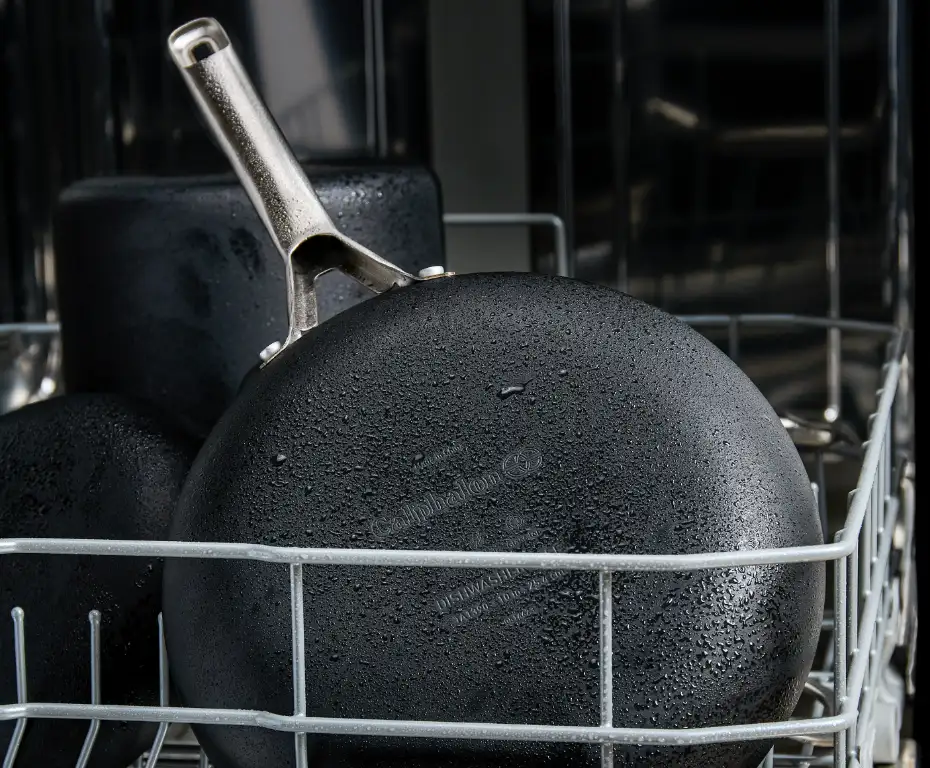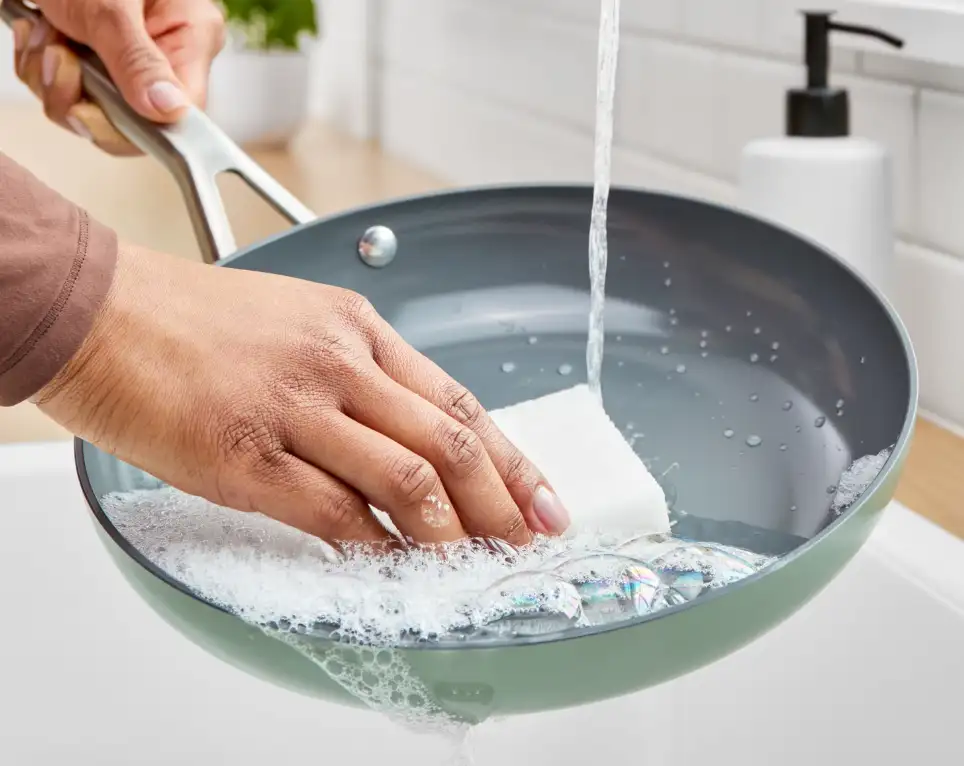Hard-anodized Calphalon pans are known for their durability, even heat distribution, and sleek dark finish.
However, over time, the exterior of these pans can accumulate stains, discoloration, or even a sticky residue.
If you’ve noticed your Calphalon pan’s exterior looking worse for wear, don’t worry—cleaning and restoring it is simpler than you might think.
This guide provides expert tips to keep your hard-anodized cookware looking and performing its best.
Understanding Hard-Anodized Cookware
Hard-anodized aluminum undergoes an electrochemical process that hardens the aluminum, making it non-porous and resistant to corrosion.
Unlike traditional aluminum, it does not have an exterior coating. Instead, its finish is an integral part of the metal, which can change color due to improper cleaning or exposure to harsh detergents.
Here’s what to know:
- Stains and discoloration: These are often cosmetic and do not affect the pan’s performance.
- Residue: Sticky or dark films are usually caused by cooking oils or improper cleaning methods.
What You’ll Need to Clean the Exterior

To clean and restore your Calphalon pan’s exterior, gather these supplies:
- Warm soapy water
- A non-abrasive sponge or Scotch-Brite™ Heavy Duty Scrub Sponge
- Bar Keeper’s Friend® cleanser
- A soft cloth or microfiber towel for drying
- Optional: Calphalon Dormond™ cleanser for restoring the original finish
Step-by-Step Cleaning Instructions
1. Let the Pan Cool Completely
Plunging a hot pan into cold water can warp the metal, so always allow your cookware to cool down before cleaning.
2. Soak in Warm, Soapy Water
Fill your sink with warm water and a few drops of mild dish soap.
Submerge the pan and let it soak for 10–15 minutes. This helps loosen stuck-on food and grease.
3. Scrub Gently with a Non-Abrasive Sponge
Using a Scotch-Brite™ Heavy Duty Scrub Sponge, gently scrub the exterior in circular motions.
Focus on stained or discolored areas.
Avoid steel wool or other abrasive pads, which can scratch the surface.
4. Apply Bar Keeper’s Friend® Cleanser
For tough stains or discoloration, sprinkle Bar Keeper’s Friend® on the exterior surface.
Add a few drops of water to create a paste and scrub with the sponge.
Work in the same direction as the grain of the pan to minimize scratches.
5. Rinse Thoroughly
Rinse the pan under warm water to remove all soap and cleanser residue.
Any leftover cleaning product can leave streaks or spots on the pan.
6. Dry Immediately
To prevent water spots, dry your pan thoroughly with a soft cloth or microfiber towel. Hand-drying ensures a streak-free finish.
7. Restore the Finish (Optional)
If your pan’s exterior still looks dull or scratched, use a specialized cleanser like Calphalon Dormond™.
Apply the cleanser to a dry Scotch-Brite™ pad and rub in the direction of the grain.
Follow with a final wash using Bar Keeper’s Friend® and rinse thoroughly.
Pro Tips for Maintaining Your Calphalon Pans
- Avoid Dishwashers: Even if labeled dishwasher-safe, washing hard-anodized pans in a dishwasher can strip the finish and void the warranty.
- Stick to Handwashing: Use mild dish soap and non-abrasive tools to clean your pans after every use.
- Don’t Use Harsh Chemicals: Cleaners with bleach or citrus additives can damage the anodized finish.
- Store Properly: Stack pans with a protective layer, like a paper towel or trivet, to prevent scratches.
When to Replace Your Cookware
If the discoloration persists despite cleaning, or if the pan shows significant wear affecting its performance, it might be time to consult Calphalon’s warranty policy.
Submitting photos to their customer service can help determine whether your pan qualifies for a replacement.
Conclusion
Cleaning the outside of your Calphalon pans doesn’t have to be a daunting task.
With the right tools and techniques, you can restore your hard-anodized cookware to its original beauty.
Regular maintenance ensures your pans will continue to perform and look great for years to come.
For more tips and product recommendations, explore Calphalon’s cookware care guides or visit their website.

